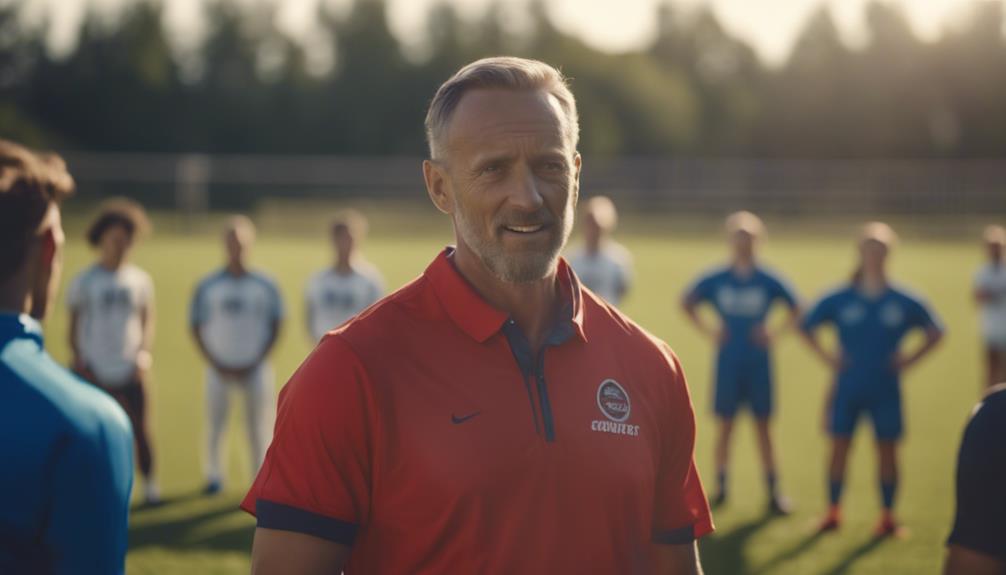
If you’ve ever found yourself daydreaming about working in the fast-paced world of sports, sports marketing might be the perfect career for you. This field combines your love for athletics with creativity and business savvy, allowing you to shape how fans engage with their favorite teams, athletes, and events. Whether it’s launching a new campaign for a sports brand or strategizing for a major event, sports marketing is both challenging and rewarding. Ready to dive in? Here’s a guide on how to become a sports marketer.
1. What Exactly is Sports Marketing Anyway?
Sports marketing is all about promoting sports teams, athletes, and related brands to fans and consumers. It encompasses everything from advertising campaigns and public relations to fan engagement strategies and sponsorship deals. Essentially, it’s the bridge that connects sports entities with their audience—making sure that fans know about the latest gear, upcoming games, or athlete appearances. Sports marketers use their creativity and analytical skills to craft campaigns that resonate with fans and drive sales.
But it isn’t just about selling merchandise or filling stadiums. Sports marketing also involves building relationships—creating loyalty between fans and teams or brands. It’s about understanding the culture of the sport and the emotions tied to it. Marketers often study market trends, audience behavior, and even social media engagement to tailor their strategies effectively. In a nutshell, sports marketing is a dynamic blend of passion and strategy.
2. Key Skills You Need to Rock Sports Marketing
To thrive in sports marketing, you’ll need a diverse skill set. First and foremost, strong communication skills are crucial. Whether you’re pitching ideas to clients, writing engaging copy for campaigns, or interacting with fans, conveying your message clearly and effectively is paramount. Additionally, creativity is key; you’ll want to brainstorm innovative ways to capture the audience’s attention, stand out in a crowded market, and keep fans engaged.
Analytical skills are also essential. Understanding data—like fan demographics, sales numbers, and engagement metrics—can help you refine strategies for maximum impact. Familiarity with digital marketing tools and platforms is another must-have. In today’s world, where social media plays a huge role, knowing how to leverage these platforms for marketing purposes can set you apart. Balancing creativity with analytical thinking will help you excel in this competitive field.
3. Education Paths: What to Study for Success
When it comes to education, there are various paths you might consider. A degree in marketing, business, or communications provides a solid foundation. Many universities also offer specialized programs or courses focused on sports management or sports marketing, which can give you a targeted edge. These programs often cover vital topics such as branding, sponsorships, and the economics of sports, preparing you for the unique challenges of the industry.
Don’t underestimate the value of hands-on learning. In addition to formal education, consider certifications in digital marketing or social media management. These can bolster your resume and show potential employers that you’re dedicated to staying current in the field. Remember, the more knowledge and skills you acquire, the better equipped you’ll be to tackle the demands of sports marketing.
4. Internships: Your Secret Weapon to Break In
If you’re serious about jumping into sports marketing, internships are your golden ticket. They provide invaluable real-world experience and a chance to make industry connections. Many sports teams, agencies, and brands offer internship programs, and they’re often looking for enthusiastic candidates ready to learn. Not only will you gain practical skills, but you’ll also get a glimpse into the daily workings of the sports marketing world.
Internships can also help you determine which area of sports marketing you’re most passionate about—be it event management, digital marketing, or brand strategy. Plus, a successful internship can sometimes lead to a full-time job offer. So, don’t hesitate to apply for multiple opportunities, even if they’re unpaid. The experience you gain might be worth its weight in gold when it comes to landing that dream job.
5. Networking Tips for Aspiring Sports Marketers
In the world of sports marketing, who you know can be just as important as what you know. Networking helps you build relationships that can lead to job opportunities and collaborations. Start by attending industry events, conferences, and local sports games. You’ll meet professionals who can offer insights, mentorship, or even job leads. Don’t be shy—introduce yourself, share your interests, and ask questions.
Online networking is equally important. Platforms like LinkedIn can be powerful tools for connecting with industry professionals. Join relevant groups and participate in discussions to showcase your knowledge and passion for sports marketing. You might also consider reaching out to alumni from your school who work in the field. A simple message expressing your interest can lead to valuable advice or introductions, so don’t underestimate the power of a friendly outreach!
6. Building a Standout Resume for Sports Jobs
When applying for sports marketing positions, your resume needs to grab attention quickly. Start with a clear, concise layout that highlights your most relevant experiences and skills. Tailor your resume for each job application, emphasizing aspects of your background that align with the specific role. Use strong action verbs to describe your accomplishments, and don’t be afraid to showcase any innovative projects you’ve worked on, whether in school or during internships.
Additionally, consider including links to your online portfolio or relevant social media accounts. If you’ve managed a blog, created engaging content, or run successful social media campaigns, make sure potential employers can see your work in action. A well-crafted resume not only reflects your qualifications but also gives a glimpse of your personality and passion for the industry.
7. The Importance of Staying Updated on Trends
The sports marketing landscape is constantly evolving, so it’s essential to stay informed about the latest trends and technologies. Subscribe to industry publications, follow thought leaders on social media, and participate in webinars to keep your knowledge fresh. Being aware of emerging trends—like the impact of esports or the rise of influencer marketing—can give you an edge in discussions and interviews.
Moreover, understanding the cultural influences on sports marketing can help tailor your strategies. For instance, knowing how social movements affect fan engagement can guide your campaigns. Staying updated not only enhances your skill set but also demonstrates your commitment to continuous learning—an attractive quality in any candidate.
8. Gaining Experience Through Volunteering
Volunteering for sports events or organizations is another excellent way to gain experience and make connections. Many organizations rely on volunteers for everything from event planning to marketing efforts. By stepping in, you’ll build a resume that showcases your initiative and dedication, while also acquiring skills that are directly applicable to sports marketing.
Additionally, volunteering allows you to meet others in the industry, potentially leading to job opportunities. Plus, it’s an excellent chance to test out different roles and responsibilities to see what you enjoy most. Whether it’s helping with social media promotion for a local event or assisting with logistics for a charity game, every bit of experience counts and can help prepare you for a career in sports marketing.
9. Finding Your Niche in the Sports Marketing World
The field of sports marketing is diverse, with various niches you can explore. You might find yourself drawn to event marketing, digital content creation, sponsorship management, or even public relations. Take the time to research each area, identifying where your strengths and interests align. This will not only help you focus your job search but also allow you to position yourself as an expert in that niche.
As you explore your options, don’t hesitate to reach out to professionals in those areas for informational interviews. Learning about their experiences can provide clarity on what niche might be the best fit for you. Finding your niche is a significant step in building a fulfilling career in sports marketing, so take the time to explore and reflect on where you see yourself thriving.
10. Job Hunting: Tips for Landing Your Dream Role
When it comes to job hunting in sports marketing, persistence is key. Start by searching job boards, company websites, and LinkedIn for openings that match your skills and interests. Be ready to apply for a range of positions—entry-level roles can often open doors to more advanced opportunities later on. Customize your cover letter and resume for each application to highlight your unique fit for the role.
In addition to traditional job searching, leverage your network. Reach out to friends, former colleagues, or contacts you’ve made through internships and volunteering. Let them know you’re on the lookout for opportunities. Often, the best job leads come from personal connections. Stay positive, keep honing your skills, and don’t forget to celebrate small wins along the way—you’re one step closer to landing your dream role!
Becoming a sports marketer is an exciting journey that combines your love for sports with creative strategy and business acumen. By developing the right skills, gaining experience through internships and volunteering, and building a strong network, you’ll be well on your way to breaking into this dynamic field. Keep your passion alive, stay informed about the latest trends, and don’t hesitate to chase your dreams. With determination and the right approach, your future in sports marketing could be just around the corner!





